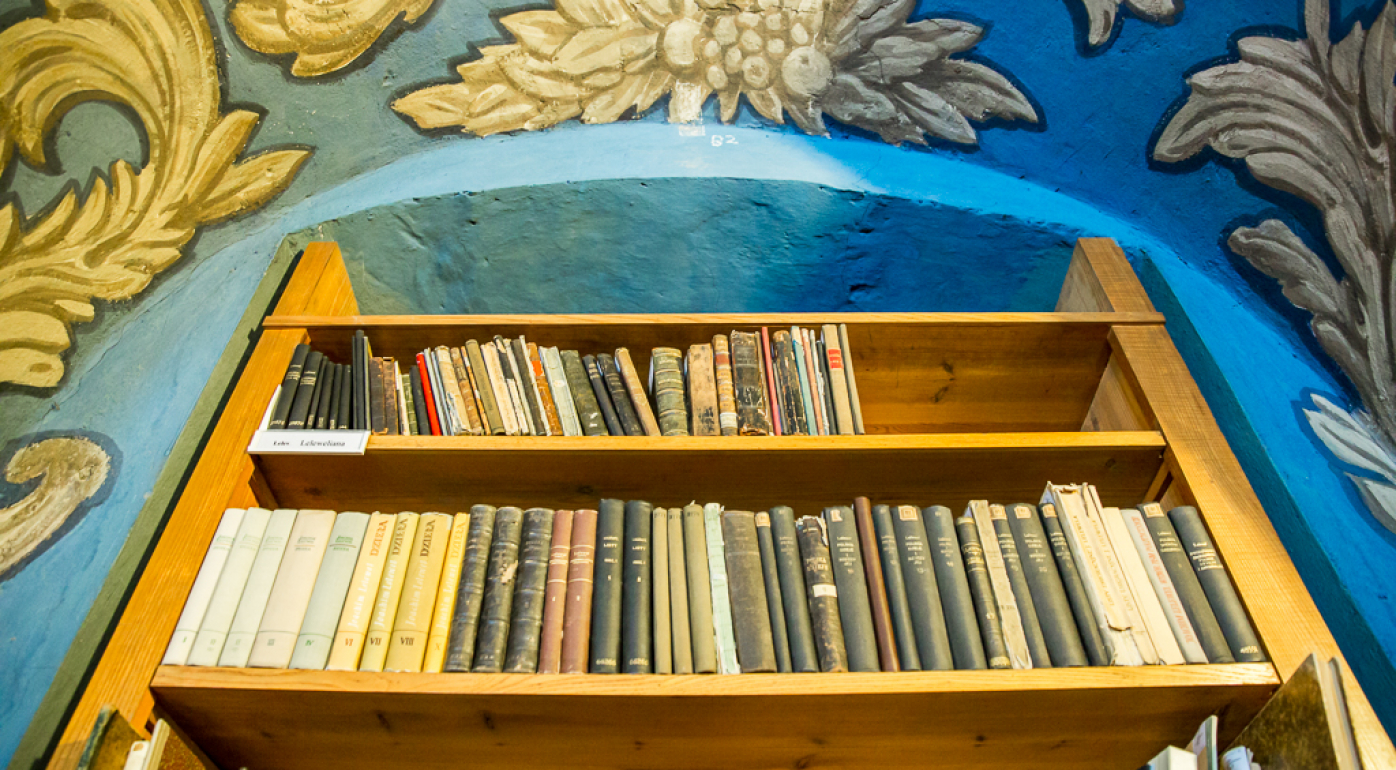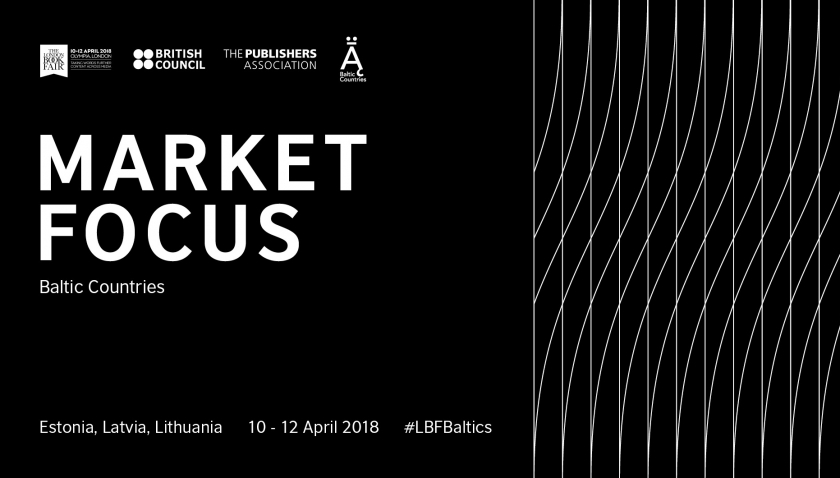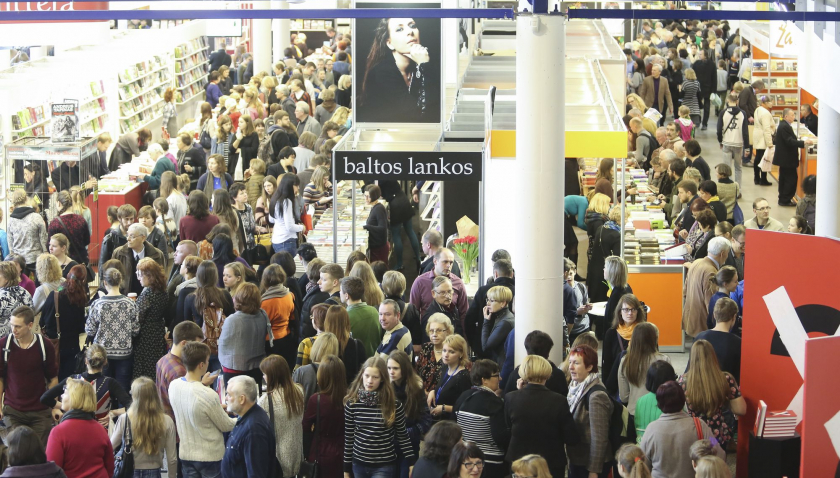Lithuanian literature comes from a country that has seen a lot and has suffered plenty of trials. Its natural progress in tune with Western cultural trends has been interrupted many times by foreign oppression. Throughout the 20th century, it experienced a range of dramatic shifts and historical transformations, turbulence and ideological pressure. Occupied for nearly 50 years, Lithuania started breathing freely around 1989, when the Soviet Union crumbled and the Berlin Wall came down, and when the Baltic countries joined hands in the Baltic Way. On 11 March 1990, by reclaiming its independence, the Republic of Lithuania regained its place on the map of the world. Since then, independent and freely composed Lithuanian literature could also return to its natural course: liberated from the former pressures of ideological censorship, it embraced a variety of creative trends, and started gathering new impetus to develop. The year 1989 is thus the best starting point from which to begin the story of contemporary Lithuanian literature.
What should we know about Lithuanian literature?
- Poetry: Lithuanians are a nation of poets. That is why Lithuanian literature has a strong lyrical tradition, which was carved out at the turn of the 19th and 20th centuries by the formation of the modern nation and the standardisation of the Lithuanian language. Maironis is lauded as the patriarch and a classic of Lithuanian poetry, with his most famous collection of verse being Pavasario balsai (1895) (Voices of Spring). Poetry is the most popular literary form in Lithuania. Proof of its popularity is the abundance of titles published, and the sustained tradition of two big international annual festivals, Poetry Spring and Druskininkai Poetic Fall.
- The short story: The short story is closely connected with the formative stage of Lithuanian prose in the mid-19th century and its flourishing in the early 20th century, and especially with the work of Jonas Biliūnas and Jurgis Savickis. It also flourished after the 1950s as the main pulse of Lithuanian prose during the Soviet occupation. The genre allowed for more liberty than the novel: by focusing on personal experience, it avoids ideological conflicts. The present decade’s leading practitioner of the form is Danutė Kalinauskaitė.
- The novel: This genre has gone through many trials, and the best way to appreciate it is to read the three most celebrated novels of their times. A modernist novel that launched the genre’s popularity between the wars is Altorių šešėly (1933) (In the Shadow of the Altars) by Vincas Mykolaitis–Putinas, the story of the life, vocation and later choices made by the young priest Liudas Vasaris, enriched with the author’s autobiographical details. One of the most popular and almost idolised pieces is Balta drobulė (1958) (The White Shroud, 2017) by Antanas Škėma, a novel of catastrophic modernism, fusing postwar nihilism with émigré life in America, with all its dramatic shifts and inner human challenges. The most notorious novel of early independence, a landmark in contemporary Lithuanian literature, which shattered the canon and overturned the tradition, is Vilniaus pokeris (1989) (Vilnius Poker, 2016) by Ričardas Gavelis. A story about Vilnius, it is also a detailed record of the death throes of the Soviet regime.
- The essay: This genre blossomed as a particular feature of Lithuanian literature at the beginning of the new millennium (2000 to 2004). Combining the classic essay and short fiction, it was the most popular prose genre at the time, and is still an important part of contemporary Lithuanian literature. Through it, writers have begun to explore what is personal, private and intimate, something which had been unthinkable in the Soviet era. The most distinguished practitioners of the essay form are Rolandas Rastauskas, Sigitas Parulskis and Giedra Radvilavičiūtė.
Contemporary Lithuanian literature and recommendations for reading
In the current decade, Lithuanian literature is increasingly relying on narrative, as is obvious even in poetry, by turning to prose forms and the story. The novel is witnessing a breakthrough, which is a sign that readers are overcoming their reticence in order to embrace engaging plots. Lithuanian literature is finally taking strides into other languages, which takes us to the following recommendations for reading:
- Dalia Grinkevičiūtė’s memoir about deportation and life in Siberia Lietuviai prie Laptevų jūros (1997) (A Stolen Youth, A Stolen Homeland, 2002) has become a bestseller in the East European biography and memoir category on German Amazon (Aber der Himmel – grandios, Matthes & Seitz Berlin, 2014).
- Ričardas Gavelis’ novels deal with the repressive system and the ways that ideological propaganda operated. His novel Vilniaus pokeris (Vilnius Poker, Pica Pica Press, 2016) was received with absolute popular and critical acclaim in France (Vilnius Poker, Monsieur Toussaint Louverture, 2015), and an English translation of his Jauno žmogaus memuarai (1991) (Memoirs of a Life Cut Short, Vagabond Voices, 2017) is soon to come out.
- The cult novel Tūla (1993) (Tūla, Pica Pica Press, 2016) by Jurgis Kunčinas is about love and death in the distinctively bohemian world of Vilnius.
- The novel Trys sekundės dangaus (2002) (Three Seconds of Heaven), about military service in the Soviet army, is by Sigitas Parulskis, one of the most popular and widely read contemporary writers.
- Kristina Sabaliauskaitė’s Silva rerum (2008, 2011, 2014, 2016), a four-part historical novel about the Grand Duchy of Lithuania, is the current decade’s bestseller in Lithuania, and is also taking the Polish and Latvian bestseller lists by storm.
- Some novels have recently been translated into a number of languages. Alvydas Šlepikas’ poetic story Mano vardas – Marytė (2012) (My Name is Marytė) is about the fate of the ‘wolf-children’, the offspring of East-Prussian Germans in the Second World War (published in Belarusian, Dutch, Estonian, Latvian, German, Polish and Ukrainian). Žuvys ir drakonai (2013) (Fishes and Dragons) by Undinė Radzevičiūtė, an expert in irony and black humour, is about the clash between the East and the West. The author writes about missionaries from Europe trying to convert Chinese emperors to Christianity, and about present-day family life in the city. It was published in Germany in 2017, and it is currently being translated into Polish, Bulgarian, Italian, Latvian, Estonian, Hungarian and Spanish. The book was awarded the European Union Prize for Literature in 2015.
- Books written in English by Antanas Sileika (Buying on Time,1997; Underground, 2011) and international bestselling author Ruta Sepetys (Between Shades of Gray, 2011; Salt to the Sea, 2016). These two writers with Lithuanian roots have opened up some painful and little-known pages in Lithuania’s history, especially the Second World War and its aftermath.
- Tomas Venclova, Lithuania’s most internationally recognised poet, a friend of the Nobel Prize winners Joseph Brodsky and Czesław Miłosz, is one of the few poets in Lithuania creating rhythmic poetry in the Classical tradition, impregnated with rich cultural references.
- The beautifully told stories for children by the author and illustrator Kęstutis Kasparavičius have been translated into numerous foreign languages.
Present-day literary life in Lithuania follows a course marked by some major literary events: the annual international Vilnius Book Fair in February (it is the biggest of its kind in the Baltic States), the Poetry Spring festival (sounding its poetic notes every May), and the international poetry festival Druskininkai Poetic Fall (in early October). The main literary awards are also linked to these occasions. The Vilnius Book Fair announces the list of the 12 Most Creative Books of the Year (the exclusive verdict of literature scholars), and the finalists in the Book of the Year competition (selected by readers’ votes). Each Poetry Spring selects a poet laureate, and in the autumn, the Jotvingiai and Young Jotvingis prizes go to the authors of recent editions of poetry.
Further reading
How the Earth Carries Us. New Lithuanian Poets, an anthology of contemporary Lithuanian poetry
The Dedalus Book of Lithuanian Literature (ed. by Almantas Samalavičius)
Vilnius Review: The Online Magazine for Lithuanian Literature
Upcoming publications
Vilnius Poker, Ričardas Gavelis, translated by Elizabeth Novickas, Pica Pica Press, 2016
Tūla, Jurgis Kunčinas, translated by Elizabeth Novickas, Pica Pica Press, 2016
Memoirs of a Life Cut Short, Ričardas Gavelis, translated by Jade Will, Vagabond Voices, to be published in 2017
The White Shroud, Antanas Škėma, Vagabond Voices, to be published in 2017
Read more about upcoming publications in our Upcoming Baltic Literature blog.
Festivals


